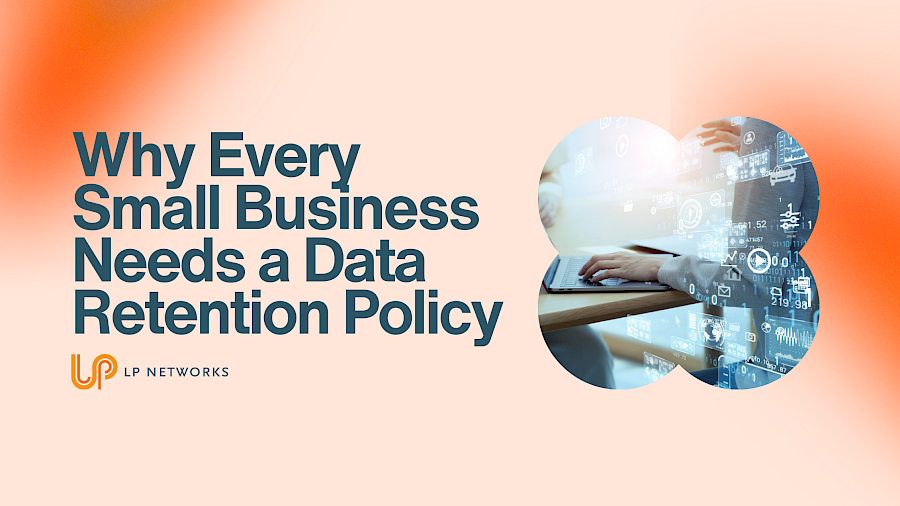- Solutions For
Specialist IT Support Services for:
- Popular Services
- Security
Security
- Our Expertise
Our Full Range of IT Services
- Learn
- About Us
- Contact
Posted 18th August 2025

You’re not alone. The digital world has transformed the way we work, and with that comes an overwhelming amount of information to store, organise, and protect — from employee records and contracts to customer emails, backups, and financial statements.
A study by PR Newswire found that 72% of business leaders have abandoned making a decision because the data was too overwhelming.
Without proper management, all this information can quickly become disorganised and unmanageable.
That’s where an effective data retention policy comes in. It’s not just about cleaning up old files - it’s about knowing what to keep, what to delete, and why it matters.
Think of a data retention policy as your company’s rulebook for managing information. It defines:
Some data is essential for daily operations or legal compliance, while other information just takes up space and increases risk. Holding on to everything might feel “safe” but it actually leads to higher storage costs, system clutter, and potential legal issues.
A clear policy allows you to keep what’s necessary - and do it responsibly.
A well-planned policy strikes the balance between data usefulness and data security. It ensures you only store valuable information for as long as it’s needed.
Key reasons small businesses implement them include:
Archiving also plays a big role. Rather than storing everything in your active systems, older but still necessary files can be kept in low-cost, long-term storage.
Having a robust data retention policy can deliver:
Every business is different, but there are some universal steps to follow:
Here’s a step-by-step approach to creating your policy:
If your business deals with customer information or operates in a regulated industry, compliance is essential.
Examples include:
Failing to comply can lead to heavy fines and reputational damage — which is why working with an experienced IT service provider is so valuable.
You wouldn’t keep every receipt or post-it note forever, and the same goes for digital data.
A smart, well-organised data retention policy isn’t just an IT best practice, it’s a business strategy that protects your company, saves money, and keeps you compliant.
At LP Networks, we don’t just fix computers - we help businesses work smarter. If you’re ready to take control of your data, reduce risk, and improve efficiency, get in touch with our team today.
Article used with permission from The Technology Press.

